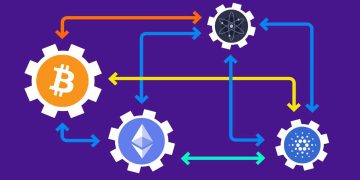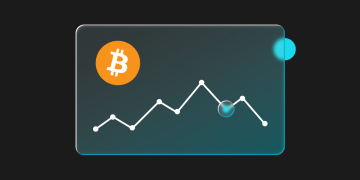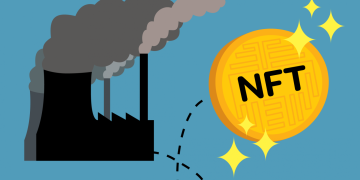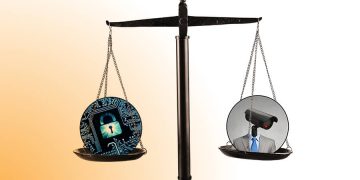Introduction
In recent years, blockchain technology has moved beyond cryptocurrency into a broad spectrum of industries, offering innovative solutions for businesses worldwide. With the proliferation of blockchain platforms like Ethereum, Hyperledger Fabric, and Corda, enterprises face an increasingly complex decision-making process when selecting the appropriate blockchain platform for their needs. The decentralized, secure, and transparent nature of blockchain technology provides significant benefits for industries such as finance, supply chain, healthcare, and more. However, each blockchain platform comes with its unique strengths and weaknesses, making it essential for businesses to carefully assess their specific requirements before making a decision.
This article explores the major factors that influence the selection of a blockchain platform for enterprise use. By examining the characteristics of leading platforms such as Ethereum, Hyperledger Fabric, and Corda, we aim to provide a detailed framework for enterprises to choose the most suitable solution for their specific use cases.
Understanding Blockchain Platforms
Before diving into the specifics of each platform, it’s crucial to understand the fundamental types of blockchain platforms and their varying features. Generally, blockchain platforms can be categorized into:
- Public Blockchains: Open to everyone, enabling decentralized applications (dApps) and cryptocurrency transactions. The most popular public blockchain is Ethereum.
- Private Blockchains: These blockchains are restricted to a specific set of participants. They are used for enterprise purposes to maintain greater control over access and governance. Hyperledger Fabric is one such platform.
- Consortium Blockchains: Hybrid systems that combine aspects of both public and private blockchains, where multiple organizations share control over the network. Corda is a prominent example of this type of blockchain.
Key Considerations for Choosing the Right Blockchain Platform
When enterprises look to implement blockchain technology, they must consider several factors:
1. Scalability
Scalability refers to the platform’s ability to handle a growing amount of transactions without compromising on performance. For businesses that anticipate high transaction volumes, scalability is a critical factor.
- Ethereum: Ethereum, being a public blockchain, faces scalability challenges, especially with network congestion during periods of high demand. Ethereum 2.0, which aims to implement a proof-of-stake (PoS) consensus mechanism, seeks to improve scalability.
- Hyperledger Fabric: Hyperledger Fabric is designed to address enterprise-level needs, making it highly scalable. It supports high throughput and efficient transaction processing, making it ideal for supply chain management and financial institutions.
- Corda: Corda’s architecture enables scalability by using a notary-based consensus system. This ensures that only relevant participants (parties involved in a transaction) are notified of transactions, avoiding unnecessary network traffic.
2. Transaction Speed and Cost
Transaction speed is another key consideration. Some platforms offer faster transaction times, while others are more suitable for high-cost transactions.
- Ethereum: Ethereum transactions can sometimes be slow, especially when the network is congested. The introduction of Ethereum 2.0, along with Layer 2 scaling solutions like Optimistic Rollups and ZK-Rollups, are expected to address these issues. However, Ethereum’s gas fees can sometimes be prohibitively high, particularly during peak usage.
- Hyperledger Fabric: Hyperledger Fabric offers quick transaction processing as it doesn’t rely on energy-intensive mining. Fabric’s modular design allows businesses to tailor their system, optimizing transaction speed and minimizing costs.
- Corda: Corda is known for its fast transaction processing. Because Corda is designed for financial services, it focuses on delivering low-latency and high-throughput capabilities.
3. Privacy and Security
Privacy is a significant concern for enterprises, especially in regulated industries like finance, healthcare, and legal. The security of data, along with the privacy of transactions, is crucial to maintain compliance and trust.
- Ethereum: While Ethereum is a decentralized and transparent platform, it may not meet the privacy requirements for certain industries. Public blockchains like Ethereum record all transaction details on a public ledger, which can be accessed by anyone.
- Hyperledger Fabric: Hyperledger Fabric is built for enterprises that require high levels of privacy. With private channels and endorsed policies, the platform ensures that data is visible only to the parties involved in a specific transaction. It is also highly secure, with permissioned networks limiting access to trusted participants.
- Corda: Corda also emphasizes privacy, allowing participants to share only the data relevant to their transactions. It uses notary nodes to verify transactions, ensuring that sensitive business information is not exposed to unauthorized parties.

4. Interoperability
Interoperability refers to the ability of a blockchain to connect and communicate with other systems or blockchains. For enterprises, seamless integration with existing technologies or other blockchain platforms is vital.
- Ethereum: Ethereum supports a vast ecosystem of decentralized applications (dApps), but its interoperability with other enterprise systems is still a work in progress. Ethereum’s interoperability with other blockchain systems is improving through the development of cross-chain protocols like Polkadot.
- Hyperledger Fabric: Hyperledger Fabric is designed for business networks and provides robust interoperability options. It can integrate with existing enterprise systems, like ERP and CRM, and even connect with other blockchain networks.
- Corda: Corda is designed for interoperability by enabling different platforms and networks to interact. It uses Corda Network, a permissioned blockchain network for sharing information between different Corda users, and aims to integrate with other public blockchains, such as Ethereum.
5. Governance and Consensus Mechanism
Governance in a blockchain network refers to the processes that determine how decisions are made within the system. Consensus mechanisms dictate how transactions are validated and how control is distributed across the network.
- Ethereum: Ethereum uses the proof-of-work (PoW) consensus mechanism, which, while decentralized, consumes a lot of energy. The transition to Ethereum 2.0 will see Ethereum adopting a proof-of-stake (PoS) system to reduce energy consumption and improve scalability.
- Hyperledger Fabric: Hyperledger Fabric uses a modular consensus mechanism, meaning that businesses can choose the consensus model that best fits their needs. This flexibility is a key strength for enterprises looking for customizable solutions.
- Corda: Corda’s consensus model is different from both Ethereum and Hyperledger Fabric. It employs notary nodes to validate transactions, ensuring a level of privacy and efficiency without relying on a global consensus like PoW or PoS.
6. Ecosystem and Community Support
An enterprise blockchain platform with a robust ecosystem and active community support is crucial for long-term success. Active development communities, extensive documentation, and strong support from vendors and consultants can make the implementation and scaling process much easier.
- Ethereum: Ethereum boasts the largest blockchain community, with an extensive ecosystem of developers, dApps, and platforms. As the leading platform for decentralized applications, it has vast resources available for developers and enterprises alike.
- Hyperledger Fabric: Hyperledger Fabric, backed by the Linux Foundation, has gained significant traction among enterprise-level blockchain developers. Its ecosystem is continuously expanding, with strong contributions from major industry players like IBM and Accenture.
- Corda: Corda is supported by R3, a financial technology company, and has been widely adopted in the financial services sector. Its ecosystem includes a broad network of banks, insurers, and other financial institutions.
Use Case Scenarios for Each Blockchain Platform
1. Ethereum
Ethereum is best suited for industries where decentralization and smart contract functionality are key components. It is ideal for:
- DeFi (Decentralized Finance): Ethereum powers a vast majority of DeFi projects, offering decentralized lending, borrowing, and trading solutions.
- Digital Identity: Projects like uPort and Civic leverage Ethereum to provide decentralized digital identity solutions.
- Supply Chain: Ethereum’s transparency and immutability can improve transparency in the supply chain, although scalability challenges remain for large-scale implementations.
2. Hyperledger Fabric
Hyperledger Fabric is specifically designed for enterprises that need private, permissioned networks. It’s ideal for:
- Supply Chain Management: Fabric’s privacy features, such as private channels, make it highly suitable for complex supply chain ecosystems where confidentiality and high throughput are crucial.
- Financial Services: Many banks and financial institutions use Hyperledger Fabric to streamline their operations, especially in payment processing and trade finance.
3. Corda
Corda is ideal for use cases that require privacy and interoperability between various entities. It is well-suited for:
- Financial Services: Corda was specifically designed with the financial sector in mind, allowing for seamless integration of various financial institutions, ensuring privacy, and supporting complex transactions.
- Healthcare: Corda’s secure, private transactions can be used to manage sensitive patient data and healthcare records, facilitating secure collaborations between different healthcare providers.
Conclusion
Choosing the right blockchain platform is a critical decision for enterprises, as it directly impacts the effectiveness of business processes, scalability, security, and costs. Ethereum, Hyperledger Fabric, and Corda each bring distinct advantages to different industries and use cases.
- Ethereum is ideal for public, decentralized applications, especially in the DeFi space.
- Hyperledger Fabric is better suited for enterprises seeking a private, permissioned solution for secure and scalable business processes.
- Corda is tailored for industries that require high privacy, such as financial services and healthcare.
In conclusion, businesses must carefully assess their requirements, including transaction volume, privacy needs, regulatory concerns, and scalability, before selecting the blockchain platform that will best support their long-term strategic goals. By understanding the unique strengths of each platform, enterprises can unlock the true potential of blockchain technology.

















































